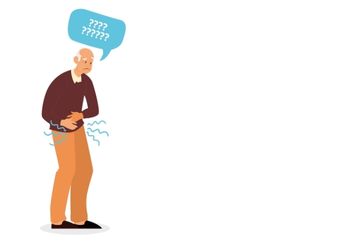Alcohol Related Dementia
What is Korsakoff’s Syndrome and alcohol related dementia?
Some forms of dementia may be caused by drinking too much alcohol. In Wernicke–Korsakoff syndrome the damage to the brain is caused in a very specific way. Alcohol prevents the body from getting enough thiamine (vitamin B1), which is vital for brain cells to work properly. This lack of vitamin B1 can have severe and long-lasting effects on the brain. Wernicke–Korsakoff syndrome has two separate stages.

What are the two stages of Wernicke–Korsakoff syndrome?
The first stage of Wernicke–Korsakoff syndrome is called ‘Wernicke’s encephalopathy’. In this stage there will be a brief time when a person has intense inflammation (swelling) of their brain. If this condition isn’t treated quickly, the person may develop a more long-term condition called ‘Korsakoff’s syndrome’. This has many of the same symptoms of dementia.
Can you recover from Wernicke–Korsakoff syndrome?
About a quarter of the people affected by Wernicke–Korsakoff syndrome who get treatment make a good recovery. About half make a partial recovery and still need support to manage their lives. About a quarter of people with the condition make no recovery and may need long-term care in a specialist residential care home.
What causes Wernicke encephalopathy?
Wernicke’s encephalopathy develops if a person’s brain doesn’t get enough thiamine (vitamin B1). This is almost always caused by a person drinking too much alcohol. Alcohol related dementia & Korsakoff’s Syndrome Alcohol prevents thiamine from being absorbed properly in the gut, stops it from being used properly in the body, and increases the amount of thiamine that the body loses in the urine.

What are the symptoms of Wernick’s encephalopathy?
The symptoms of Wernick’s encephalopathy can be difficult to identify – particularly if a person is still intoxicated with alcohol. The symptoms can sometimes be mistaken for alcohol withdrawal.
Symptoms include:
- Disorientation, confusion of mild memory loss
- Difficulty controlling eye movements
- Poor balance, being unsteady and walking with their legs apart
- Being undernourished
It is unusual for someone with Wernicke’s encephalopathy to have all these symptoms, however most people will be disorientated and confused. Because a person with Wernicke’s encephalopathy is in a very serious condition, diagnosis is often carried out in a hospital. The doctor will look for symptoms of the condition and may also carry out a brain scan to confirm their diagnosis.
Is there a treatment for Wernicke’s encephalopathy?
The treatment of Wernicke’s encephalopathy is for the person to immediately stop drinking alcohol and be given several injections of high doses of thiamine (and other B vitamins).
What is Korsakoff’s Syndrome?
Korsakoff’s syndrome is a long-term condition that develops when Wernicke’s encephalopathy is left untreated or is not treated soon enough. Over time, the damage to the brain becomes more difficult to recover from.

What are the main conditions?
The main symptoms of Korsakoff’s syndrome are confusion and memory loss – particularly memory of events that happened after the person developed the condition.
Because the person is less able to form new memories, they may also repeat the same question several times. For some people with the condition, memories of the more distant past can be lost or distorted.
Other symptoms include:
- Difficulty understanding new information or learning new skills
- Changes in personality – the person may become apathetic (lacking emotional reactions), become very talkative, or do the same things over and over • Lack of insight into their condition
- Confabulation – a person’s brain might fill gaps in their memory with things that didn’t happen. It is important to remember that the person thinks this is a real memory. It may seem that they are purposefully lying, but often this isn’t the case. Alcohol related dementia & Korsakoff’s Syndrome
- Problems with concentration, planning, making decisions or solving problems.
How do individuals get diagnosed with Korsakoff’s syndrome?
A person may be diagnosed with Korsakoff’s syndrome if they show some of the symptoms and have a history of drinking too much. A brain scan can be helpful but is not always necessary. People with Korsakoff’s syndrome are often diagnosed in hospital after they have been admitted for other medical reasons.
Get in touch
If you have any questions about our care or services, please get in touch below.
Please note that we cannot respond to queries about application process, or current vacant positions. Please visit our careers website for information about working with us or current vacancies.

 Live Chat
Live Chat Find a home
Find a home Enquire now
Enquire now